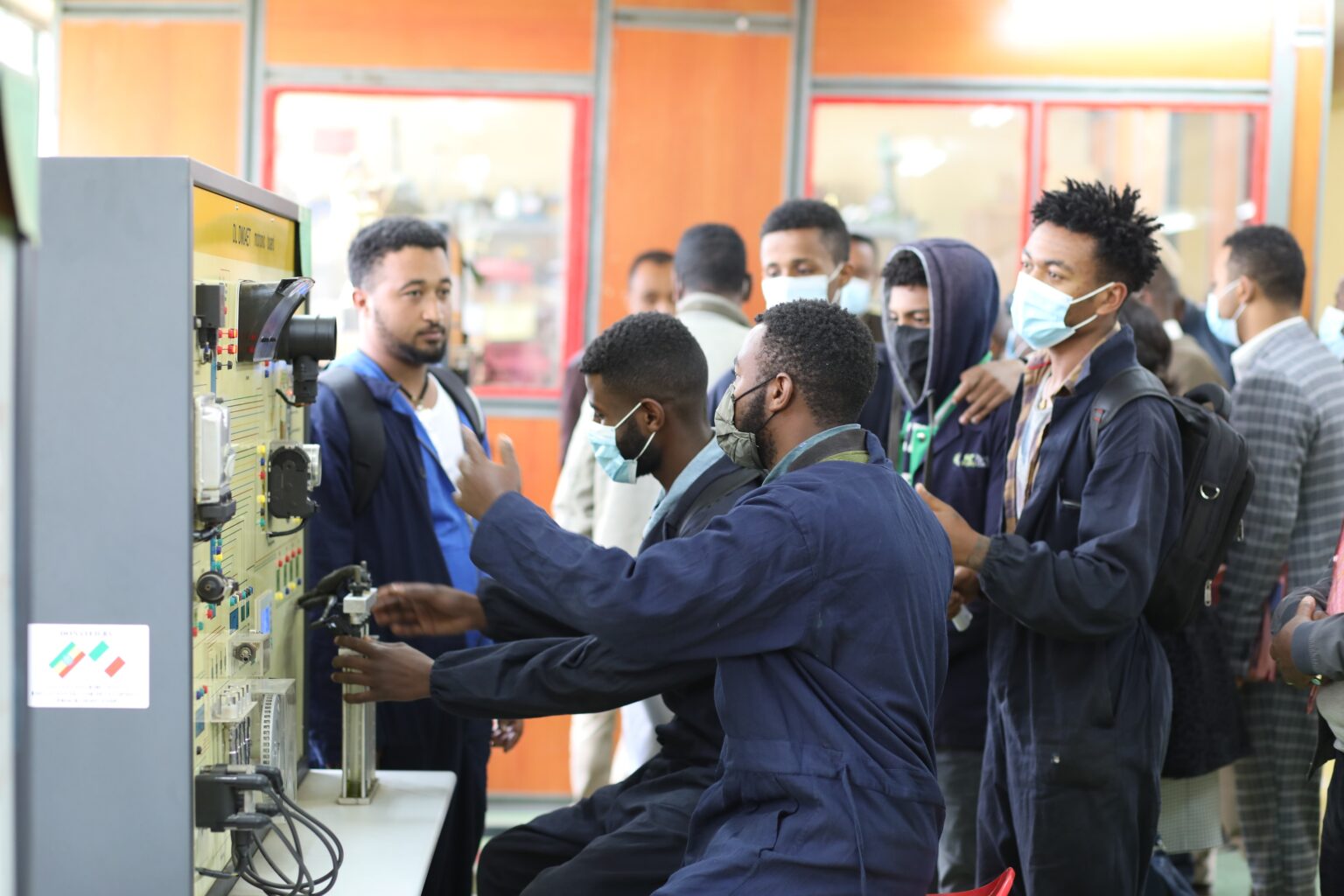- Total students enrolled in the sixteen Regional Flagship TVET Institutes (RFTIs) increased from 6,971 students at baseline to 30,776 students at mid-term
- The project has surpassed its initial target to enrol 20,000 students annually in long-term and short-term training programs.
- According to the World Bank Enterprise Survey of 2015, over 25 per cent of firms surveyed in sub-Saharan Africa reported an inadequately educated workforce as a significant hindrance.
Education in Africa
Student enrolment in Technical and Vocational Education and Training (TVET) colleges in East Africa has quadrupled from the baseline data.
In February, the Inter-University Council of East Africa (IUCEA) released a mid-term evaluation report supported by the World Bank-funded East Africa Skills for Transformation Project (EASTRIP) in Mombasa, Kenya 1.
The report was carried out to evaluate the project’s performance in its mid-term. It revealed that the total students enrolled in the sixteen Regional Flagship TVET Institutes (RFTIs) increased from 6,971 students at baseline to 30,776 students at mid-term.
Read Africa’s lucrative education business opportunities.
The project has surpassed its initial target to enroll 20,000 students annually in both long-term and short-term training programs.
World Bank’s motivation to start TVETs
According to the World Bank Enterprise Survey of 2015, over 25 percent of firms surveyed in sub-Saharan Africa reported an inadequately educated workforce as a significant hindrance. The firms rated over 25 percent of all production workers evaluated as unskilled.
World Bank spotted a shortage of specialized technical and vocational education and training (TVET) skills in the sectors of transport, manufacturing, energy, ICT and agro-processing, a gap that could slow the industrialization agenda in Africa.
TVETs can be a powerful engine to drive economic restructuring and transformation in Sub-Saharan Africa, as in the Republic of Korea, Singapore, China, and other countries where TVETs have channelled technology transfer and skills to workers.
The project also seeks to increase the enrolment of female students in engineering and technological fields, which has been fruitful. The total number of female students enrolled in selected TVET courses has increased from 741 students at baseline to 5,230 students at mid-term.
The number of graduates employed within six months has increased from 47 per cent to 69 per cent.
“We are advocating for our member universities to move from academic-based learning that has characterized university education for decades to 21st-century competency-based learning that emphasizes skills development for the world of work.” Said the Executive Secretary of IUCEA, Professor Gaspard Banyankimbona.
Prof. Gaspard said TVET institutions had a crucial role in giving East Africans the necessary learning experiences and required skills to meet the demands of the fast-changing employment landscape.
He added that IUCEA had developed a new 2021-2026 strategic plan to harmonize TVET qualifications in the East African Community to facilitate regional mobility of students, staff and labour upon graduation.
Read: Mastercard in Africa signs top universities to launch educational platforms for SMEs.
“Over the last three years, significant progress has been made in expanding enrolment and developing demand-driven programmes in most TVET institutes.” Said World Bank’s Lead Education Specialist, Dr Xiaoyan Liang. “The underlying principles of industry linkage and institutional autonomy are two important pillars that EASTRIP use to improve the relevance and quality of TVET, and these are being well recognized.”
Here is the list of sixteen TVET Institutes supported by EASTRIP, grouped by area of focus and the country they are situated; 7 in Ethiopia, 5 in Kenya and 4 in Tanzania.
- Dire Dawa Polytechnic College- Railway construction, Ethiopia.
- Ethiopia Railway Academy- Railway construction Ethiopia.
- Kenya Coast National Polytechnic- Marine technology, Kenya.
- National Institute of Transport- Aviation and transport, Tanzania.
- Kombolcha TVET Polytechnic College- Road construction, Ethiopia.
- Meru National Polytechnic- Building Infrastructure, Kenya
- Kenya Institute of Highway and Building Technology Kenya- Highway Infrastructure, Kenya.
TVET institutes under Power and Energy
- General Wingate Polytechnic College- Power/Energy, Ethiopia.
- KenGen Geothermal Training Centre- Geothermal, Kenya.
- Arusha Technical College-Hydropower, Tanzania.
TVET institutes under manufacturing
- Federal TVET Institute- Leather and tool making, Ethiopia.
- Hawassa TVET Polytechnic College- Textile/garment- Ethiopia
- Kisumu National Polytechnic- Leather, Kenya.
- Dar es Salaam Institute of Technology (DIT) Mwanza Campus- Leather, Tanzania.
- Holeta TVET Polytechnic College Ethiopia- Agro-processing, Ethiopia.
TVET institute offering ICT
- Dar es Salaam Institute of Technology (DIT) Dar es Salaam Campus- ICT, Tanzania
Read: Kenya: Zamara partners with Jua Kali Players to drive financial inclusion.
